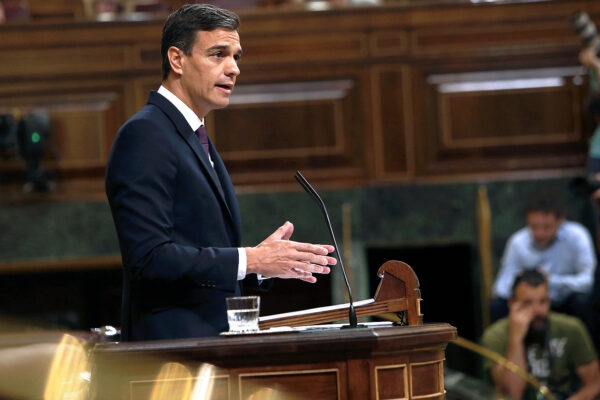
Support for maintaining the coronavirus quarantine is weakening in Spain. Prime Minister Pedro Sánchez has partly lifted a two-month lockdown, allowing small stores to reopen and restaurants to serve takeaway, but the opposition is calling for a quicker return to normalcy.
Deaths from coronavirus disease have stabilized at under 200 per day. The infection rate is also slowing.
But Spain still has more known cases of COVID-19 than any country except the United States.
The government fears that without strict controls, the virus could rebound in the next six to eight weeks.
Restless
Regional leaders and opposition parties nevertheless argue for lifting the state of alarm that has been in effect since March 14.
Under the regime, which Congress will need to renew on Wednesday, all non-essential businesses have been closed and Spaniards have been confined to their homes.
The leaders of the independent-minded Basque Country and Catalonia have criticized the centralized approach from the start. They have been joined in recent days by the conservative presidents of Galicia and Madrid.
Even regional barons of Sánchez’ own Socialist Party are growing restless.
In Congress, Sánchez has so far depended on the separatist Catalan Republican Left and the conservative People’s Party for his majority. Both oppose extending the state of alarm.
Consensus
Sánchez’ hope was to foster a broad consensus for an economic recovery program, but only the liberal-nationalist Citizens, who have ten out of 350 seats in Congress, have signed up in addition to Sánchez’ far-left coalition partner, Podemos.
The People’s Party and far-right Vox, who have a combined 140 seats, are not interested.
Some 585,000 Spaniards have lost their jobs in the last two months, pushing unemployment up to a record 5.2 million.
Including furloughed workers and people on medical leave, as many as seven million Spaniards, or 30 percent of the working population, now rely on the state.
Tourism, which normally accounts for one-sixth of economic output, and construction have been hit the hardest.
The government expects the economy will shrink 9 percent this year. Sánchez has called for a €1.5-trillion European recovery fund in addition to the €200 billion Spain is spending itself. Half of the bailout consists of loan guarantees to businesses.
